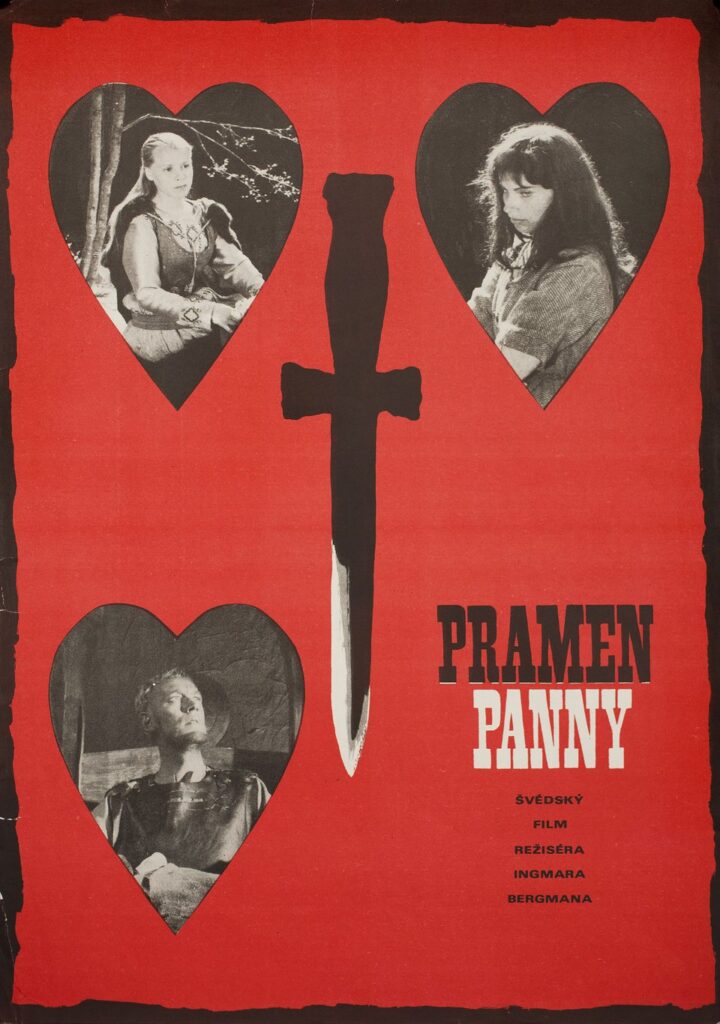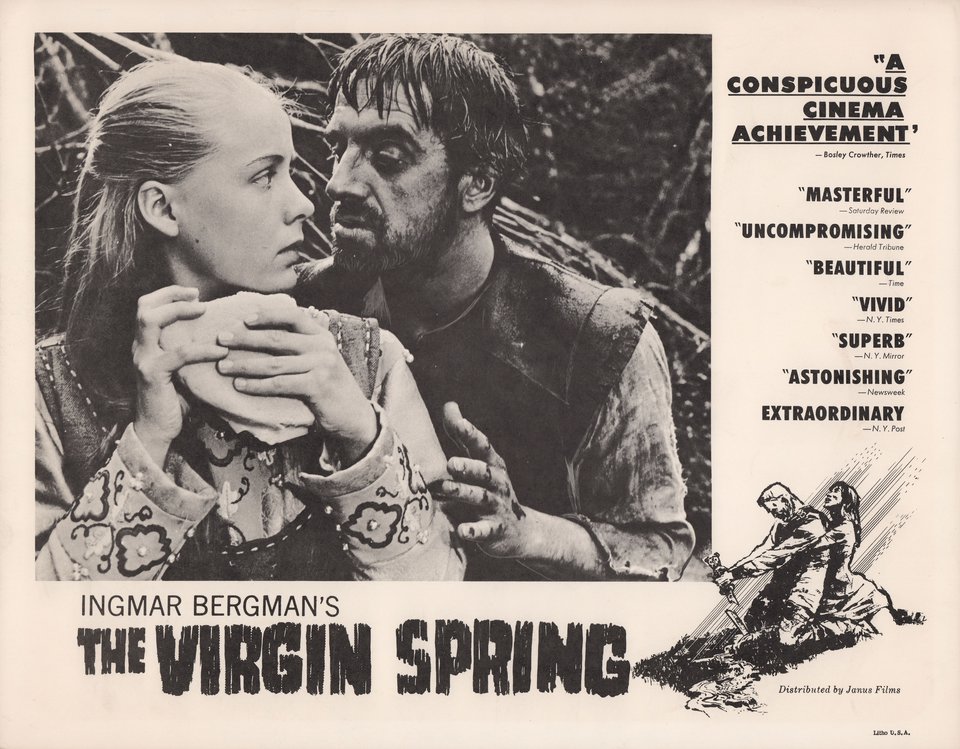Original title: Jungfrukällan


Synopsis: In 14th-century Sweden, an innocent yet pampered teenage girl and her family’s pregnant and jealous servant set out from their farm to deliver candles to church, but only one returns from events that transpire in the woods along the way.

My Review:
Ingmar Bergman’s “The Virgin Spring” (1960) is a haunting medieval tale of innocence, brutality, and vengeance that remains one of cinema’s most powerful moral explorations. Set in 14th-century Sweden, the film follows the devastating journey of a devout Christian farmer (brilliantly portrayed by Max von Sydow) whose beloved daughter is brutally murdered while traveling to church. When the killers unwittingly seek shelter at the family’s farm, a devastating cycle of violence and spiritual crisis unfolds. Bergman’s masterful direction creates an atmosphere of impending doom, enhanced by Sven Nykvist’s stark black-and-white cinematography that captures both the pastoral beauty of the Swedish countryside and the darkness of the human soul. The film’s unflinching examination of faith tested by unspeakable tragedy earned it an Academy Award for Best Foreign Language Film and inspired countless filmmakers since. In just 89 minutes, “The Virgin Spring” delivers a devastating meditation on revenge, divine justice, and the fragile nature of religious conviction that resonates long after its final, miraculous frame.
